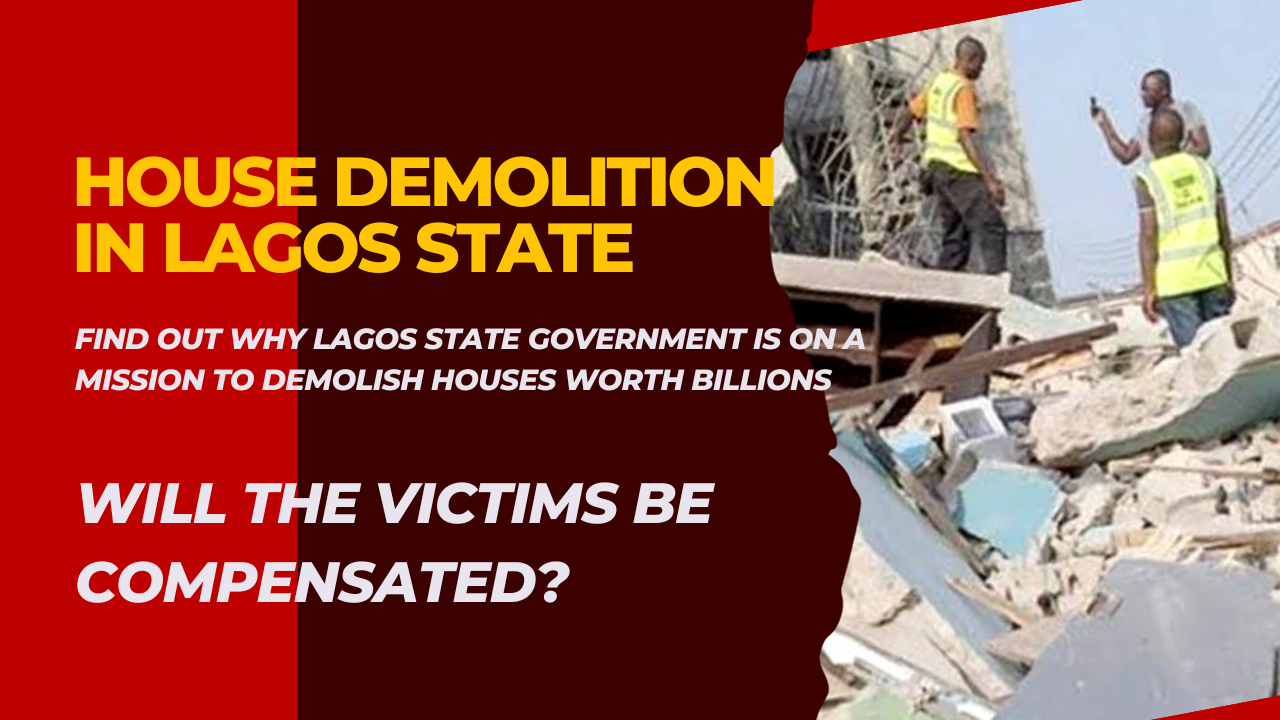In recent months, the Lagos State government has embarked on a controversial and widely-discussed mission: the demolition of houses in the upscale area of Lekki. This action has raised questions, concerns, and speculations about the motives behind such a massive urban transformation. In this article, we will explore the reasons behind the Lagos State government’s decision to demolish houses in Lekki and shed light on the bigger picture.
The breach of building setback laws is a significant issue in Lagos, Nigeria, and is often cited as a reason for the demolition of houses. Building setbacks are legal requirements that determine the minimum distance between a building and the property boundary or public infrastructure like roads and drainage. These setbacks are established to ensure safety, environmental considerations, and orderly urban development. When buildings violate these regulations, it can lead to several problems, ultimately resulting in demolition. Here are some of the key reasons why the breach of building setback laws can lead to the demolition of houses in Lagos:
- Environmental Concerns: Lekki is prone to flooding and other environmental challenges, and the government has cited environmental concerns as a reason for the demolitions. They aim to create better drainage systems and reduce the risks of flooding that have historically affected the area.
- Safety Concerns: Building setbacks are designed to ensure that there is enough space between structures to prevent potential hazards. Violations of these regulations can lead to unsafe conditions, increasing the risk of accidents, such as fires or collapses, especially in densely populated areas.
- Traffic Congestion: Buildings that encroach on road setbacks can impede traffic flow, causing congestion and hindering emergency services. This not only affects the convenience of residents but also poses a danger in case of emergencies.
- Drainage and Flooding: Lagos, being a coastal city with its share of heavy rainfall, has a critical issue with flooding. Buildings too close to drainage systems can obstruct the flow of water, leading to flooding. When this happens, the government often has to take action to mitigate the risks, which can include demolishing buildings that are blocking drainage paths
- Urban Aesthetics: Setback regulations are also in place to maintain the visual aesthetics and architectural integrity of a city. Buildings that are too close to roads or property boundaries can create a cluttered and unattractive urban environment.
- Legal Compliance: Building setbacks are enshrined in local laws and regulations, and it is the responsibility of property owners and developers to adhere to these rules. Non-compliance can result in legal actions, fines, and, ultimately, demolition if property owners fail to rectify the violations.
In Lagos, the government and relevant authorities take the enforcement of building setback laws seriously, and they regularly conduct inspections to identify violators. Demolition, while a last resort, is employed when property owners do not cooperate in rectifying the violations or when violations pose significant safety and environmental risks. It’s important for property owners, developers, and city planners to be aware of and adhere to these regulations to ensure safe and sustainable urban development in Lagos.



